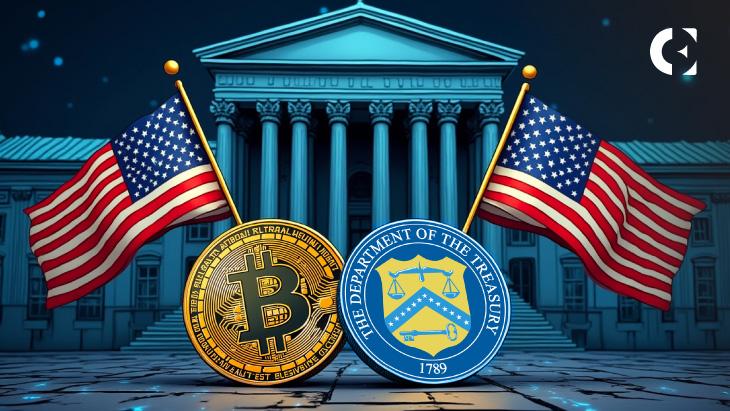U.S. Treasury Secretary Scott Bessent has confirmed that the department remains committed to expanding the Strategic Bitcoin Reserve established under President Donald Trump’s March executive order. The update came after earlier remarks that claimed that the Treasury would not be purchasing Bitcoin.
U.S. Treasury Secretary Scott Bessent has confirmed that the department remains committed to expanding the Strategic Bitcoin Reserve established under President Donald Trump’s March executive order. The update came after earlier remarks that claimed that the Treasury would not be purchasing Bitcoin.
Speaking in a statement on X, Bessent confirmed that Bitcoin forfeited to the federal government would serve as the reserve’s foundation. He added that the Treasury is still examining budget-neutral mechanisms to acquire additional Bitcoin, aligning with the administration’s aim to strengthen the United States’ position in the digital asset space.
The clarification followed an with FOX Business earlier on Thursday. Bessent was quoted as saying the Treasury would not be buying Bitcoin, but would use seized assets to build the reserve. The statement was widely interpreted as signaling the end of future purchases, leading to concerns over the reserve’s growth strategy.
Approximately seven hours later, Bessent posted on X to retract the interpretation, stating that the Treasury remains committed to seeking budget-neutral acquisition methods to expand the reserve. Industry figures, including Blockstream CEO Adam Back, that the initial “not buying” comment was a misstatement.
Bessent also addressed the government’s current Bitcoin holdings, estimated to be worth between $15 billion and $20 billion. He confirmed that the Treasury does not intend to sell any of its existing Bitcoin, signaling a shift from past practices in which seized digital assets were liquidated through auctions.
The Strategic Bitcoin Reserve was announced in March as part of a broader federal policy initiative. It is intended to consolidate and safeguard the government’s Bitcoin holdings, with the possibility for expansion through both forfeited assets and budget-neutral acquisitions.
The Treasury’s slow pace in building the reserve has raised concerns among some analysts and policymakers that other nation-states could move faster in securing their own Bitcoin reserves. While Bessent’s clarification eased some uncertainty, questions remain over the specific acquisition strategies that would meet the budget-neutral requirement.
